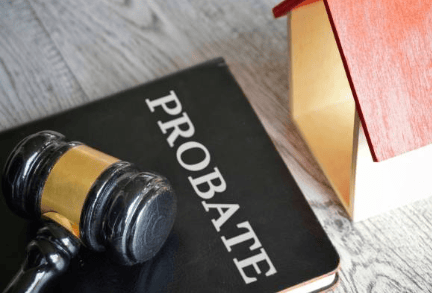Navigating the complexities of probate in the Sunshine State requires a comprehensive understanding of the different types of probate in Florida. Whether you’re an heir, an executor, or simply planning for the future, this guide serves as your essential primer on the subject. In this blog, we will break down the different types of probate in Florida, offering clarity on each process and how they impact the distribution of a deceased person’s estate. From summary administration to formal administration and everything in between, join us as we unravel the intricacies of Florida’s probate system to help you effectively manage and anticipate the legal path ahead.
Understanding the different types of Probate in Florida is crucial in the complex landscape of real estate investment. Investors like Steve Daria and Joleigh have successfully navigated this terrain by mastering the nuances between formal administration, summary administration, and disposition without administration. Their adeptness in leveraging knowledge about the different types of probate in Florida has positioned them as leading figures in the local real estate market.
Understanding the Probate Process in Florida
It’s essential to grasp the general probate process first to understand the different types of probate in Florida.
Probate begins with filing the deceased person’s will (if there is one) and the death certificate in the local probate court.

The court then validates the will, making it available to the public. If the deceased had no will, their estate would be distributed according to the state’s laws.
Generally, Florida’s probate process includes the following steps:
- Appointment of a personal representative (often referred to as the executor in other states) to manage the estate.
- Listing of the assets and liabilities of the estate.
- Payment of debts and taxes.
- Giving out of the remaining assets to the heirs or beneficiaries.
The court oversees the process throughout these steps to ensure it is carried out according to Florida law.
The Different Types of Probate in Florida
Florida law provides several options for probate, each designed to address specific situations and property types. The most common types of probate are as follows:
Formal Administration
Formal administration is the traditional probate process in Florida, typically utilized for larger estates.
The court supervises the process and involves the appointment of a personal representative who administers the estate, settles any debt, and oversees asset distribution.
Although it’s the most time-consuming and expensive probate process, it offers a structured framework for effective estate management.
Eligibility and Procedure
- No exceptions apply; formal administration is required if the decedent has been deceased for less than two years.
- The process begins with filing a petition for the administration of the estate.
- The court appointed the personal representative and granted ‘letters of administration.’ These letters give them the legal authority to act on behalf of the estate.
- The representative must then contact creditors, notify beneficiaries, and manage the estate’s assets carefully until the court deems the process complete.
Summary Administration
It is an expedited form of probate designed for smaller estates with a value of less than $75,000 or when the decedent has been deceased for more than two years.
This type of probate typically involves minimal court involvement and is generally less expensive and time-consuming.
Requirements and Procedure
- To initiate summary administration, a petition must be filed with the probate court along with the death certificate and any existing will.
- The court will then determine if the estate qualifies for summary administration.
- Once approved, the assets can be distributed to the beneficiaries or heirs without the same level of extensive court oversight as formal administration.
Ancillary Probate
Ancillary probate is necessary when a decedent owns property in Florida but is a resident of another state. The primary probate will occur in the decedent’s state of residence, and an ancillary probate case is then opened in Florida to handle only the assets within the state’s jurisdiction.
Procedure and Considerations
- If a personal representative has yet to be designated, the Florida courts must appoint one.
- It will involve a separate petition and process but works to ensure the decedent’s assets are appropriately distributed in Florida.
Disposition of Personal Property Without Administration
This option is available under certain conditions when the sole purpose is to have a personal representative appointed to handle the disposition of the decedent’s personal property. It can be used for estates with only personal property and no other types of assets.
Eligibility and Practical Application
- The value of the personal property must exceed the cost of funeral expenses and any reasonable and necessary medical and hospital expenses incurred due to the decedent’s final illness.
- This efficient process can be less burdensome for smaller estates with no real estate or substantial financial holdings.
Estate Administration Outside of Probate
While we have discussed the probate process in detail, it is essential to note that not all assets are subject to probate.
Certain assets, such as those held in a living trust or those with a designated beneficiary or joint ownership, may pass outside the probate process.
These non-probate assets typically transfer to the designated beneficiaries or co-owners upon the decedent’s death.
Common Types of Non-Probate Assets
- Life insurance policies with designated beneficiaries.
- Retirement accounts with beneficiary designations.
- Bank accounts and real estate are owned jointly with rights of survivorship.
- Assets held in a living trust.
Understanding how non-probate assets are handled is crucial when considering the estate planning process, as it directly impacts the distribution of the deceased’s property.
The Role of Personal Representatives
The personal representative or executor plays a pivotal role in the probate process. Their duties include:
- Identifying, gathering, and valuing the deceased person’s assets.
- Notifying creditors and ensuring that valid debts are paid.
- Filing tax returns and paying any incomplete taxes.
- Distributing the last assets to the beneficiaries as directed by the will or state law.
The personal representative must act in the best interests of the estate and its beneficiaries, diligently ensuring that the probate process is completed with less effort and effectively.

How to Choose the Right Probate Path
Determining the appropriate probate path requires careful consideration of the estate’s size, complexity, and unique circumstances. Here are some factors to weigh:
- The value and composition of the estate’s assets.
- The presence of a valid will and the extent to which it provides clear instructions.
- Potential disputes among beneficiaries or creditors.
- The residence of the deceased and the potential need for ancillary probate.
Consider consulting with a probate attorney to analyze these factors and guide you through the most advantageous probate method for your situation.
Frequently Asked Questions About Probate in Florida
Navigating the probate process in Florida can often seem like a complex and daunting task. Here is a compilation of frequently asked questions to demystify some of the most common concerns surrounding Florida probate procedures:
How long does probate take in Florida?
The span of the probate process varies based on the estate’s type, size, complexity, and any complicating factors. On average, simple estates with few conflicts may complete probate in as little as six months. More complex cases can take a year or longer to finalize.
Can the probate process be avoided in Florida?
In some cases, yes. Through careful estate planning, including creating a living trust and utilizing non-probate assets, individuals can reduce the amount of their estate assets that must go through the formal probate procedure.
What are the costs of probate in Florida?
Probate costs can include court filing fees, attorney fees, personal representative fees, appraisal fees, and other miscellaneous expenses.
These costs can be substantial for larger estates undergoing formal administration. However, summary administration and other simplified probate methods usually entail lower overall costs.
Can a will be challenged during the probate process in Florida?
Yes, interested parties can contest a will in Florida on specific legal grounds, such as if they believe the will was signed under duress or the decedent was not of sound mind. Will contests can significantly lengthen the probate process and incur additional legal fees.
Takeaways
- Formal Administration is one of the different types of probate in Florida, typically required for larger estates with assets exceeding $75,000. This process involves court supervision and can be more time-consuming and costly, but it ensures a thorough handling of the estate’s assets and debts.
- Summary Administration is another type of probate available in Florida, designed for smaller estates valued at $75,000 or less, or when the decedent has been deceased for more than two years. This streamlined process is quicker and less expensive than formal administration, making it an attractive option for eligible estates.
- Disposition Without Administration is the simplest form of probate in Florida, suitable for cases where the decedent’s personal property is exempt from creditors’ claims and the estate has no real property. This type of probate allows heirs to receive property without a formal probate proceeding, saving time and legal expenses.
- Knowing the different types of probate in Florida is key to good estate planning and honoring the decedent’s wishes. Each probate type comes with specific requirements and advantages, and choosing the appropriate one can significantly influence the efficiency and cost-effectiveness of the process management.
- If you’re dealing with estate planning or managing a deceased loved one’s affairs, it’s important to consult a legal professional to understand Florida’s probate system. This guidance ensures compliance with state laws and helps select the most appropriate probate process based on the estate’s size and circumstances.

